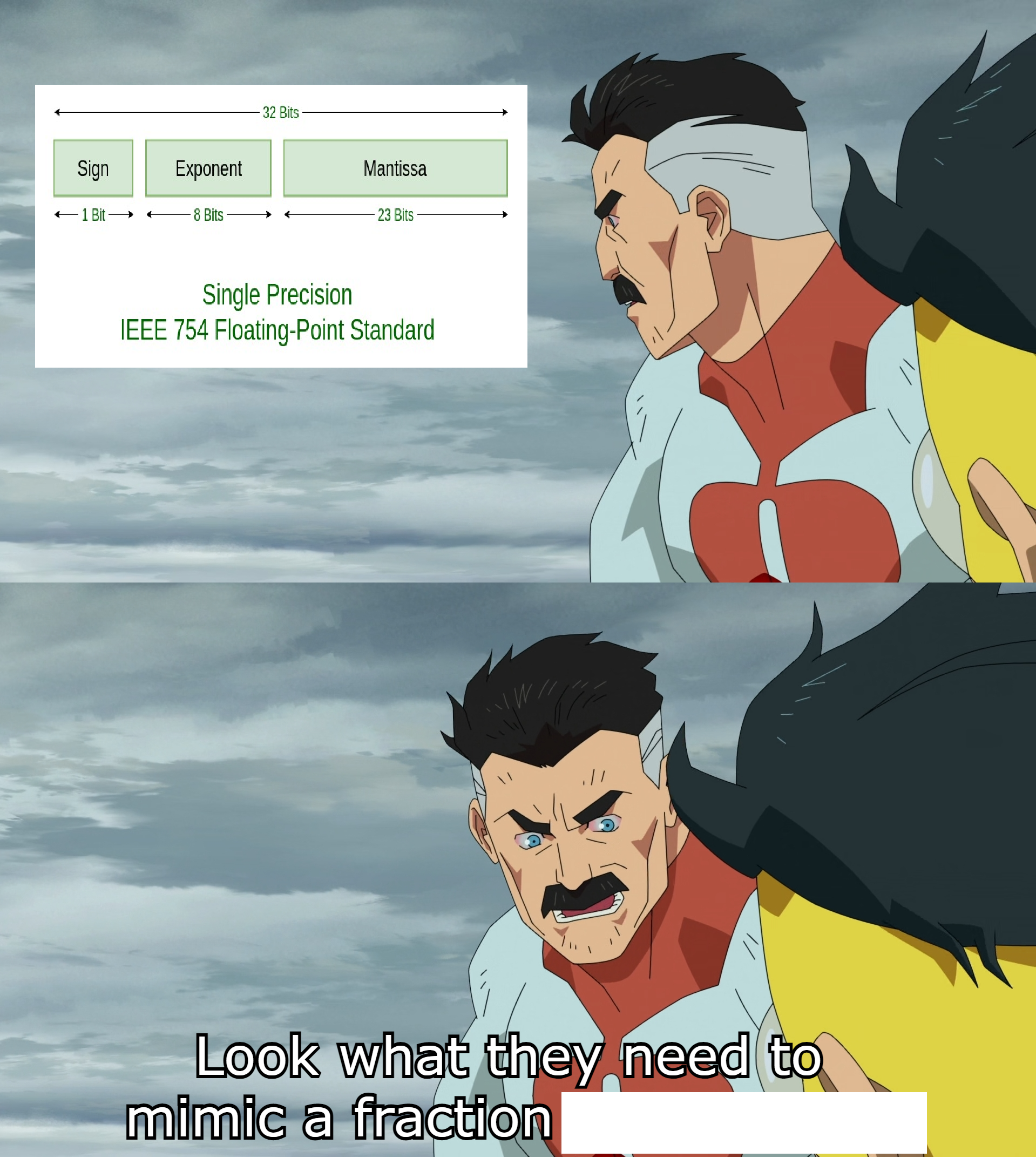this post was submitted on 02 Jan 2025
853 points (99.4% liked)
Programmer Humor
35490 readers
35 users here now
Post funny things about programming here! (Or just rant about your favourite programming language.)
Rules:
- Posts must be relevant to programming, programmers, or computer science.
- No NSFW content.
- Jokes must be in good taste. No hate speech, bigotry, etc.
founded 5 years ago
MODERATORS
you are viewing a single comment's thread
view the rest of the comments
view the rest of the comments

That's what I meant by scaling the fractions. Tbh I kind of forgot that was an option and when I remembered I had allready written the part about comparing floats so I just left it in. But yeah, encoding lengh might be a killer there.
You could also avoid reducing fractions the same way. Like I don't neecessairly need my fractions to be reduced, if I am just doing a few equality comparisons per fraction. Of course I would have to reduce them at some point to avoid exceding the encoding lentgh in the enumerator and denominator when there is a representation with a short enough encoding available.
I think the bigger problem might be the missing usecases. As another user mentioned, this would still only encode rationals perfectly (assuming no limit on encoding lengh). But I cannot see many usecases where having rationals encoded percisely, but irrationals still with an error is that usefull. Especially considering the cost.
I genuently chuckled, thanks :).